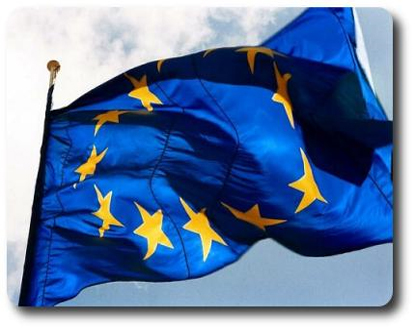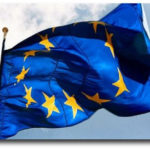Whether they are political leaders or citizens, pragmatists have not succeeded in building a prosperous and fully democratic EU. The time has come for dreamers, who are now the true realists.
 While the European house is burning, the heads of state and government are negotiating behind closed doors the sum that could be allocated to the water damage that would result from extinguishing the fire. It is reasonably impossible to blame them for having lost the connection with citizens. How could they have lost it when they never built it?
While the European house is burning, the heads of state and government are negotiating behind closed doors the sum that could be allocated to the water damage that would result from extinguishing the fire. It is reasonably impossible to blame them for having lost the connection with citizens. How could they have lost it when they never built it?
These days, no European state can solve a problem alone even though the institutional structures of the EU prevent collective solutions.
What we call a “crisis” is nothing more than the reflection of this contradiction, and what we discuss are merely its symptoms.
A Pragmatic Dream
This situation is tearing Europe apart. Between political representatives – who see themselves as pragmatists –, citizens, and a few dreamers, an abyss is beginning to open.
The crisis is owed to the pragmatists. For they have only sought to do what was “possible.” Take, for example, the single currency: its initial principle was torpedoed because national hesitations and other concerns prevented the implementation of the political instruments necessary for its supranational management.
Instead, the problems arising from this contradiction are renationalized: debts are the fault of the states, and states are forced to make a national effort. How can one expect these pragmatists who caused the crisis to resolve it?
And the dreamers? They were, and remain, the true realists. We owe them for having drawn sensible and realistic consequences – which seemed utopian in their time – from the experiences of nationalism and European Realpolitik that had reduced Europe to ashes.
The first president of the European Commission, Walter Hallstein, a German, said: “The European idea is the abolition of the Nation!” This phrase, neither the current president of the Commission nor the German chancellor would dare to pronounce today. Yet it reflects the truth.
The Choice of the Vanguard
If dreamers had been listened to, the solution to the crisis would have been found long ago. The dream, this solution, is the European Republic. European regions – without losing their particularities – would flourish freely within a framework of common law, instead of being gathered into competing nations.
The Europe we live in is ultimately not viable in its current politico-economic contours because national democracy and the transnational economy are unraveling. We are in a common monetary space but act as if our economies were still national and in necessary competition with each other.
That is why Euroland needs a transnational democracy, a European Republic with identical political, economic, and social rules for all.
The Republic is the new European project. It aims to organize its territory based on voluntary memberships, to build its unity through treaties that ensure lasting peace. It frees itself from the idea of the nation and builds the first postnational continent in history. The United States, following the model of the United States of America, is retro. The EU is the vanguard.
The European Council, and through it the member states, demand to exercise an authority over European construction that, in fact, does not exist, so much so that they dangle in front of public opinion and national electorates the misleading illusion of defending their sovereignty. National sovereignty is the affliction from which Europe suffers.
If Europe evolves on the subject of banking union and debt mutualization, then the common decision-making on expenditures will have to be organized differently.
Euroland, which will form the core of a European Republic, will need a eurozone parliament with the right of initiative, the right to vote freed from national agendas, and a budget cycle independent of the durations of legislative mandates as well as (at least partial) competencies in tax policy. Eurobonds to bridge the systemic deficit of the euro are the prospect.
In the logic of a European res publica, the gains from the wealth creation chain at the community level should be redistributed to find economic balance between centers and peripheries. In this logic, and in these times of recession, a common unemployment insurance would make the transition to a conceivable European social system.
A Positive Belonging
Economy, currency, and politics do not go separately, and only a common policy for all of Europe, legitimized by a supranational democracy, will manage to prevail over the economy. Strictly export-based national trade balances are not a strategy! Especially when 80% of the so-called export gain of a member country comes precisely from the internal market; it’s a scam of the European trade balance!
In the entire history of political ideas since Plato, the res publica is by far the most precious notion. It is the number one argument for promoting the European idea in a globalized world, and it is around it that a sense of belonging to the European “we” can be forged. In res publica, we find the idea of a positive plebiscite in favor of the political organization of a community from which the principles of social justice and general well-being can be deduced as normative objectives. Let’s not forget that these principles do not come naturally everywhere: not in the United States, for example, not in autocratic-oligarchic Russia, and certainly not in pre-democratic China.
The res publica defines Europe in a central way!
No one can say today what this brand new postnational and European democracy will look like, this avant-garde project that has never been implemented and that will make history worldwide.
Discussing this project, with all the imagination, all the dreaming, all the creativity that this continent is capable of, is the task we assign ourselves today lest we see the European peace project and its ghost leave to haunt Europe!
Long live the European Republic!



